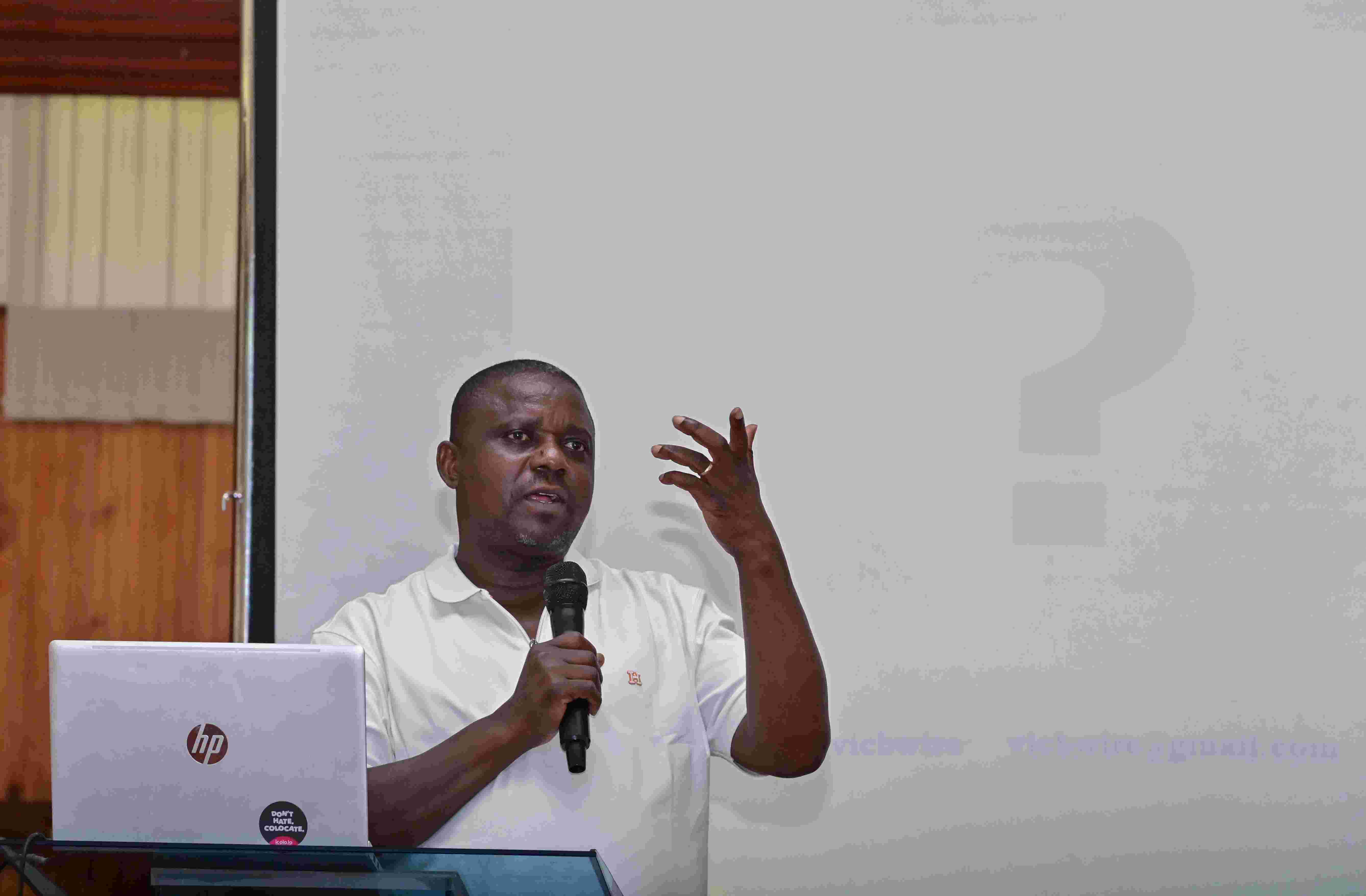
The Media Council of Kenya (MCK) has created a specialised curriculum focused on agriculture and agribusiness to improve the accuracy and depth of reporting within this vital sector.
MCK’s Director of Media Training and Development Victor Bwire explained that the ever-changing media environment demands that journalists possess current skills to deliver factual and insightful agricultural news to the public.
“With agriculture forming a cornerstone of our economy, well-informed journalism is crucial for shaping policy, educating farmers, and promoting growth in the sector. This forthcoming curriculum will equip journalists with specialised expertise, ensuring their reporting is evidence-based, perceptive, and focused on solutions,” Bwire stated during a webinar validating the Agriculture and Agribusiness Curriculum for journalists.
Christine Nguku, MCK’s Assistant Director of Media Training and Curriculum Development, stressed the value of focused, niche reporting.
She urged journalists to avoid combining diverse topics such as food security, nutrition, and agribusiness into broad, generalised articles.
“A strong agricultural story should offer detailed insights that go beyond common knowledge. We encourage journalists to highlight emerging agricultural innovations, modern farming techniques, and trends in agribusiness,” Ms Nguku remarked.
She also pointed to the Council’s previous grant schemes that have bolstered agricultural journalism and encouraged reporters to keep abreast of future opportunities designed to enhance coverage of the sector.
Dr Cromwel Lukorito, a trainer from the University of Nairobi (UoN), underlined the significance of climate-smart approaches in agricultural journalism, noting the sector’s critical role in ensuring food security, driving economic progress, and reducing poverty across Sub-Saharan Africa.
“Investing in agriculture is one of the most effective ways to lift households and communities out of poverty. However, journalists need a thorough understanding of which interventions align with changing environmental conditions,” Dr Lukorito commented.
He urged journalists to seek out scientific data, practical solutions, and evidence-based practices to bolster the credibility of their work.
“As a communicator, you must know where to find reliable scientific information, understand viable agricultural options, and identify successful models that have proven effective in specific settings,” he advised.
Dr Lukorito also emphasised the importance of blending modern scientific insights with traditional farming knowledge to avoid promoting unsuitable or ineffective technologies.
The new curriculum is designed to provide journalists with the skills to report effectively on the vulnerabilities, risks, and opportunities linked to climate change in agriculture and agribusiness.